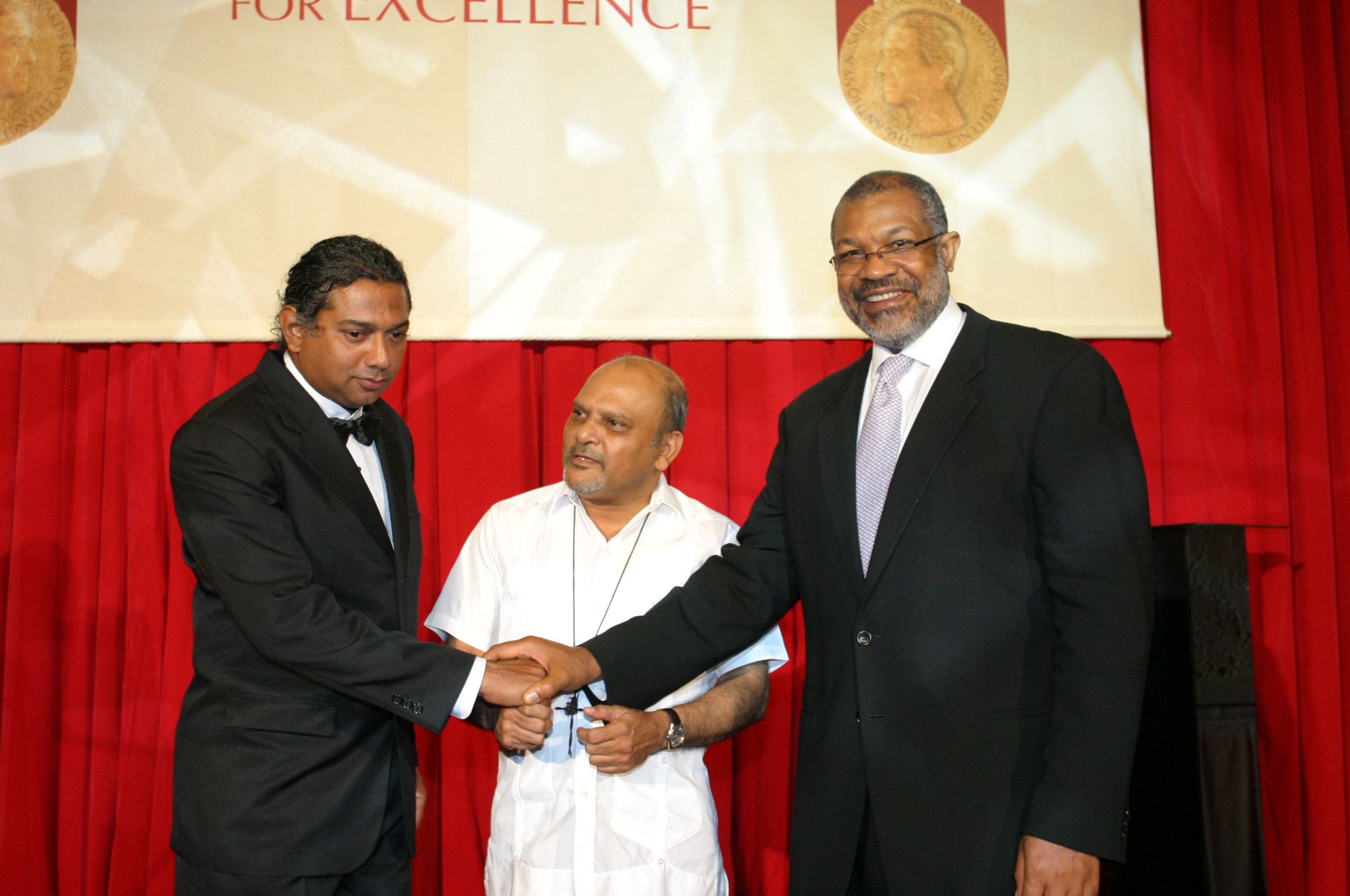After an initial degree in physiology, Professor Forrester qualified in medicine obtaining both a PhD and DM. He holds Fellowships in the Royal College of Physicians of both London and Edinburgh. For science to grow and evolve, people need to question traditional paradigms and seek to understand how these could and should be different. Professor Terrence Forrester is one such person who has chosen to question traditional knowledge and practices and their relevance to all populations.
Prof. Terrence Forrester
These questions have led to innovations in thinking and technologies for the treatment of lifestyle diseases in small, developing-country populations, making healthcare relevant to their realities. He is one of a few persons who are active in scientific medical research, relevant to Caribbean people.
Professor Forrester is a clinical scientist of exceptional ability. Most impressive is his work with and dedication to tropical medical research. His initial work was with the Tropical Metabolic Research Unit (TMRU). Following this he spearheaded the formation of the Tropical Medical Research Institute, which merged the TMRU, the Sickle Cell Research Unit, the Epidemiology Research Unit at Mona, Jamaica and the Chronic Disease Research Unit in Barbados, thus unifying four research units, across three campuses of the University of the West Indies.
His major research focus has been on the cause of hypertension and other cardiovascular diseases. He has examined the risk and impacts of obesity; metabolic programming of early life and the constraints on fetal growth; and understanding the economic implications of chronic diseases and their interventions. The relevance of this research is noteworthy given that in several Caribbean countries the prevalence of hypertension is over 25%. It contributes to one fifth of all the deaths in Jamaica and Trinidad and Tobago, and the death rate from hypertensive heart disease in the latter country is more than ten times that of Canada, for example.

Much of the effort in treatment of established cardiovascular disease could be more effectively directed if we were clearer about how to prevent it. The kind of research being done by Professor Forrester and his teams are the precursor of any such interventions. Professor Forrester’s studies have had a huge impact on public health in the Caribbean. His work is not the only research of this nature being done in the world, but it is fair to say that his is the only team in the Region carrying out world class research into problems that are of fundamental importance to Caribbean health. The quality and importance of his research has led not only to recognition, but to the roll out of its benefits to populations all over the world.
His colleagues hail him as a leader and inspiration in the field due to his dedication and hard work and his unfailing commitment to understanding tropical medical science. Professor Forrester’s scientific output throughout the years has been impressive, resulting in over 140 publications, with 95% of these in respected, peer reviewed journals, from various countries. He lectures and does his research at UWI Mona. He has served as an adviser to a number of international health organizations, including the United States Center for Disease Control. His strength lies not only in his science, but also in his entrepreneurial approach to the work of his Institute. He has succeeded in mobilizing significant funding for his Institute from both local and foreign sources. Over the years, he has helped train and mentor many young West Indians in clinical research. The number of collaborators in his publications indicates the number of persons-many young scientists whom he has helped to embark on a scientific career.
Professor Forrester (BSc., MSc., PhD., D.M.) has had a career of distinction as a medical scientist, strategic planner, administrator, fund raiser and teacher. He is 55 years of age and is based in Jamaica. He is an outstanding exemplar of excellence in Caribbean science and technology.



